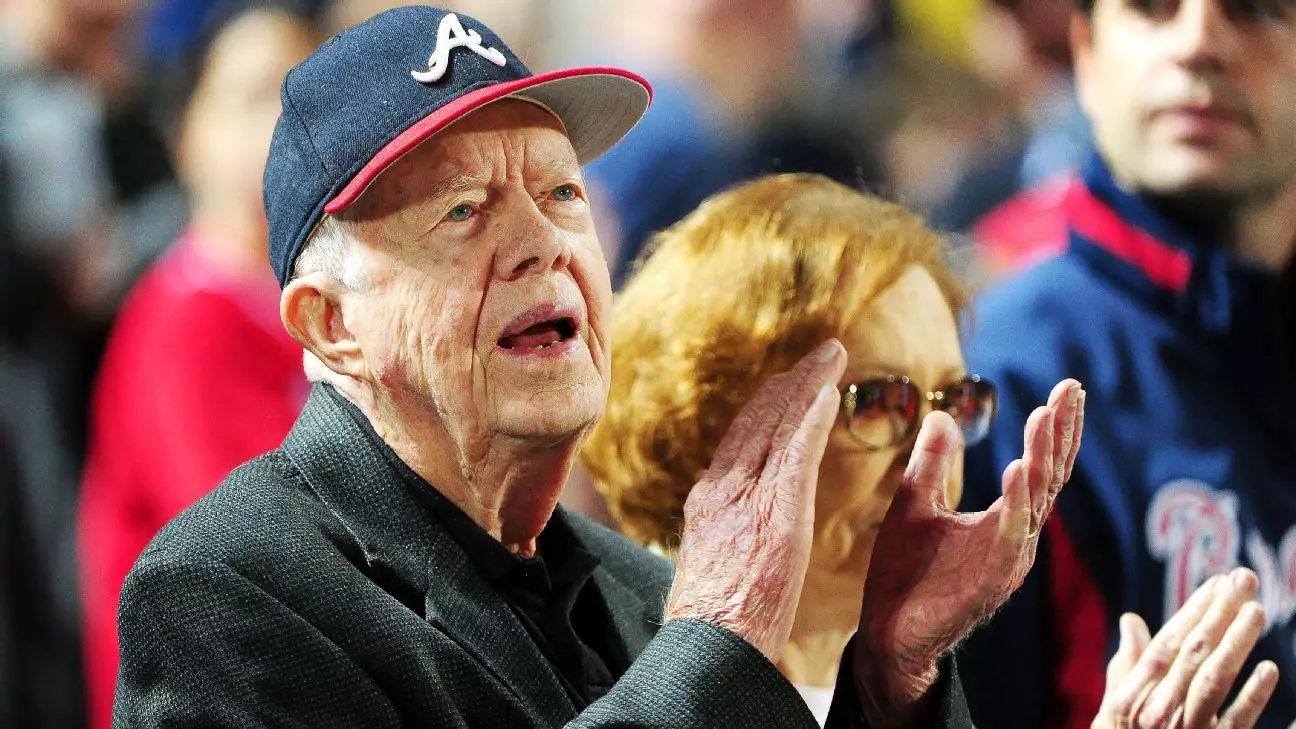Former President Jimmy Carter, a name synonymous with integrity and humanitarianism, passed away on Sunday afternoon at the age of 100. The Carter Center confirmed the news, revealing that he died peacefully, surrounded by his loved ones at his home in Plains, Georgia. His century-long life not only marked him as the longest-living U.S. president but also as a figure whose influence reached far beyond the political arena.
Carter’s presidency from 1977 to 1981, while often evaluated against the backdrop of economic challenges and foreign crises, bears a legacy deeply rooted in compassion and public service. Even after leaving office, he remained an active advocate for numerous humanitarian causes, cementing his status as one of the most respected and loved figures in American history.
Jimmy Carter’s contributions to the nation extend well beyond his single term in the White House. After serving as a Navy officer and Georgia state senator, he became governor of Georgia before ascending to the presidency. His post-presidential years are particularly notable; he founded The Carter Center in 1982, which has focused on advancing democracy, human rights, and disease prevention globally.
Carter’s dedication to humanitarian efforts were so profound that they earned him the Nobel Peace Prize in 2002. He used his platform to address critical issues—from conflict resolution to health crises—exemplifying a commitment to serving humanity that many would aspire to emulate. An integral component of his humanitarian endeavors was his prolonged partnership with Habitat for Humanity, highlighting his passion for community building and affordable housing.
Carter’s presidency was not without controversy. One of the most contentious decisions he made was in response to the Soviet Union’s invasion of Afghanistan, leading to a boycott of the 1980 Olympic Summer Games in Moscow. The decision, discussed in his memoirs, was complicated and laden with consequences. While it aligned with the broader context of Cold War politics, it sparked significant fallout, including a retaliatory boycott of the subsequent 1984 Olympics.
Reflecting on this decision in his 2010 book, “White House Diary,” Carter stated that supporting the boycott was among “my most difficult decisions.” Such admissions reveal the complexity and weight of presidential decisions and highlight his deep commitment to U.S. values, even in the face of great dissent.
Carter’s affinity for sports, particularly his lifelong devotion to the Atlanta Braves, brought him widespread affection among various demographics. Notably, he made history by welcoming the Pittsburgh Steelers, the Super Bowl champions, to the White House in 1980, symbolizing a bridge between the realms of politics and sports. His moments at Braves games, including playful exchanges on the kiss cam with his wife Rosalynn, reflected an endearing and relatable facet of the former president that endeared him to the public.
Despite his political stature, Carter’s down-to-earth personality shone through his interactions with everyday people, garnering him respect and adoration. He was approachable and humble, traits that further solidified his legacy as a principled leader who never lost sight of his roots.
Diagnosed with cancer in 2015, Carter demonstrated remarkable resilience. His decision to pursue hospice care rather than aggressive medical interventions highlighted his pragmatic understanding of the human experience. The world watched as he gracefully navigated his later years, still remaining an active figure in the conversations that shaped public opinion until the very end.
His relationship with Rosalynn, whom he married in 1946, also painted a portrait of enduring love. Together, they faced life’s trials, leaving behind a legacy not only of political service but of unwavering support for one another amid life’s challenges. Their familial bonds, visible in their children and grandchildren, reflect a commitment to values that traverse generations.
As the nation reflects on Jimmy Carter’s life and legacy, it is crucial to appreciate the far-reaching impact he has made. He represents not just a political figure, but a humanitarian whose efforts transcended borders. Through his lifelong commitment to bettering the world and advocating for those in need, Carter taught generations the significance of compassion, resilience, and service.
In death, as in life, Jimmy Carter will be remembered not only as a former president but as a respected figure who believed in the power of humanity. His influence will undoubtedly linger, inspiring a continual pursuit for betterment in the world.


Leave a Reply